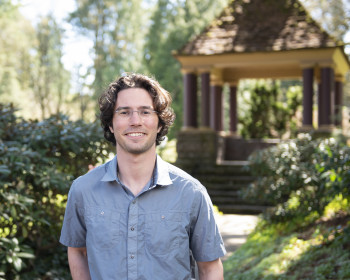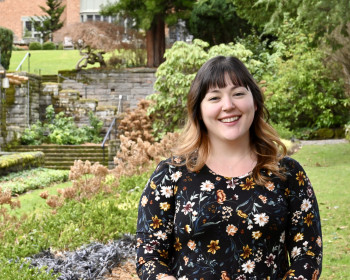LC Undergraduate Re-entry Plans Winter/Spring 2021
We are excited to welcome you back to campus for Spring semester 2021! Students did an excellent job of ensuring that we could provide in-person classes and keep the campus open during fall term by adhering to tried and true health mitigation behaviors. Let’s make sure that Spring semester is just as successful as the Fall. Below are expectations for the return of our residential and off-campus undergraduates attending in-person classes for Spring semester 2021. Please read the information carefully. The expectations below apply to all students, and are very similar to the expectations from Fall 2020. Please note that students arriving to campus after international travel are also subject to these additional expectations.
Prior to returning to campus
To begin the year with the health and well-being of all community members as our greatest priority, Lewis & Clark students are asked again to observe a two-week period of self-isolation/limitation on social exposure prior to arrival on campus. Completing the period of 2-week self-isolation is mandatory for all undergraduate students taking classes in-person–whether you plan to live on-campus or off-campus. We ask this of you because so many infected people are asymptomatic. Please consider your move-in date or planned arrival from campus and make sure you have self-isolated for a full 14 days before coming to campus.
Self-isolation in this context is defined as staying in your place of residence to the fullest extent possible for 14 days prior to arrival on campus, limiting contacts with those outside your immediate household, and minimizing any travel from home, except for essential trips (e.g., doctor’s appointments, trips to the grocery store - and in all of these adhering closely to social distancing protocols).
If you are in a home where the others you live with are not self-isolating, you should minimize close contact with them by avoiding situations where you have face-to-face contact closer than 6 feet for more than 15 minutes. Students are especially asked to avoid attending large gatherings or social hotspots, and absolutely avoiding those where social distancing cannot be maintained and face coverings are optional or not effectively practiced (e.g. bars, parties, gyms, etc.). Overnight trips or nonessential travel should be curtailed.
We are aware that some of you may need to travel by airplane, bus, or train in order to get to campus. Such travel will not invalidate your 14-day pre-arrival self-isolation. All students should follow the recommended CDC guidelines for travel in order to reduce the risk of exposure.
If it is impossible for you to self-isolate at home for the full two weeks prior to arrival to campus (e.g., due to work commitments), you should plan to self-isolate as much as possible. Upon arrival to campus, you will need to self-isolate in your residence until you have received COVID testing and negative results have been confirmed. While all CAS students will be COVID-tested near the start of the semester, students who have been unable to self-isolate for two weeks prior to campus arrival will be COVID tested first, starting about Wednesday, January 20. It currently takes up to two business days for the Health Service to receive test results.
Be sure to arrive on campus with all of the items that every student needs this year:
- 3-5 reusable/washable face coverings. It is a State of Oregon and Lewis & Clark policy that face coverings be worn by all individuals (faculty, staff, students, and visitors) in any and all public spaces at all times. Please visit the policy and FAQs on our Ongoing COVID-19 Response site for more information. For new students, we will also provide you with two cloth face coverings.
- Hand sanitizer that contains at least 60% alcohol
- Reusable thermometer, with extra batteries (if applicable)
- Disinfecting wipes
- Laundry detergent
- Facial tissues
- Copies of health insurance cards (if applicable)
- Prescription medications and over the counter medication (i.e., fever-reducing medication such as acetaminophen or ibuprofen)
- Mobile device or laptop (including headphones with a microphone) to continue your classes should you have to quarantine or self-isolate.
Other responsibilities and expectations
Upon arriving on campus, you will be asked to attest with your signature that you have completed the mandatory requirement of a 2-week self-isolation. We will also ask you (and your guest who is helping you move in) to fill out a symptom checklist. We ask that you only have one person assist you with move-in. Please let your Area Director or the Campus Living Office know if you need assistance from the College during your move-in process.
Sign the attestation form after you have completed your two-week self-isolation.
On the day of move-in, all students need to complete the COVID Self-Check and Report Form, which is available through the Health Information Portal. Any student reporting symptoms on this form should check in with the Health Service (or Campus Safety, if after hours) before moving on campus. This is the form that students will also use to report any COVID-like symptoms or potential exposure during the semester.
New to campus or coming to campus for the first time this year
You must complete our specially designed COVID educational module prior to your arrival on campus. (Returning students: you have already completed this video–you do not have to complete it again). New to campus students: if you do not complete the educational module, you will not be able to move into your residence halls or attend any classes until we have your signed attestation. Complete the 2-week isolation prior to your arrival to avoid having to be in self-isolation while you await the outcome of a COVID-19 test. Failure to complete any of these required elements could lead to a hold on your registration, de-registration, and an inability to attend your classes.
For students who are coming to campus for the first time this year, you may find previous communications from the College particularly helpful.
If you will be new to campus this spring and are a person at increased risk and so need to take extra precautions due to COVID-19, please consider contacting our Health Service staff (health@lclark.edu) regarding your health needs, and our Student Support Services staff (access@lclark.edu) to discuss your academic needs.
Arrival times to campus
Although we are still refining our expectations regarding the allowable times that students can return to campus, we anticipate the following:
Returning Students - January 16-17
Students New to Residence Halls this School Year (moving in) - January 15
We will send you definitive information regarding your allowable arrival time in the very near future.
Doing Your Part
The best way to stop the transmission of COVID-19 is through prevention. WeB4Me@LC! We ask that you take the following preventive measures during Spring semester:
- Create a campus “bubble” by limiting who can be on campus, and if you live on campus, stay on campus for the semester. As per the Oregon Health Authority guidance, the campus will be closed to any non-Lewis & Clark community members.
- During Fall term, we asked that you limit your social contacts to 4-6 of the same people to form a pod. After we receive the initial baseline testing and positivity rate for the campus (to be completed during the first 2 weeks of the semester), we may be able to safely increase the number of people in a pod for the Spring Semester 2021. Your “pod” does not have to be made up of students in your residence hall, but you will not be able to congregate in residence halls other than the one you are assigned. Socialization with individuals outside of your residence hall will have to be in designated common areas or outside. Because the weather is obviously more inclement during the Spring semester, the College will ensure there are ample indoor spaces for students to gather safely together. It is permissible to be in close contact with individuals within your pod, but maintain the requisite 6-ft social distance with any others.
- If you are a residential student, limit the amount of individuals in your residence hall room to 4 people–whether you live in a quad, double or single.
- Respect that nonessential travel is prohibited without prior approval. With the exception of limited trips to the grocery store or to off-campus doctors appointments, on-campus residential students should avoid leaving campus. Parental visitation to the residence halls or visiting with family off-campus is also prohibited during the semester. Off-campus students, staff and faculty are strongly advised to limit their nonessential travel as well. Failure to comply with these directives could result in a loss of privileges or other conduct-related sanctions.
- Do not attend large gatherings (defined as 10 or more people) or participate in high-risk behaviors, such as parties or visiting bars.
- Wear face coverings in all public areas and wash your hands frequently.
- Self-assess for COVID symptoms before leaving your residence each day. This includes taking your temperature. At the first sign of symptoms, self-isolate in your residence; fill out the COVID Self-Check and Report Form (SCARF) in the Health Information Portal; and contact the Health Service (503-768-7165). If the Health Service is closed, consider contacting the Nurse Consultation line (1-877-617-9531).
- It is critical that students answer their phones, as that is the way our Wellness Service staff will reach out to students who might have been exposed to a positive case of COVID. Please also be sure your voicemail is not full, so that staff who are trying to reach you can leave a message.
Baseline testing of all undergrads
Similar to last Fall, we anticipate testing all undergraduates (living either on-campus or off-campus) about 5-7 days after you arrive on campus. By testing in this time frame, we will be able to better detect any travel-related infection that might have occurred en route to campus. This testing will be provided at no expense to students, as long as you are tested during the designated time frame. Baseline testing will also be a good way for us to know the overall positivity rate of the student body as we begin the school year. We will send you further information about when you are expected to test. With everything this semester, we ask that you are diligent in checking your email for emails from the College. It is very important that you sign up for testing when we ask. Students who do not report for free, mandated testing during the spring semester will still be required to be tested, but will be required to pay the college’s cost of $100 for testing.
What will life be like on campus?
In the Fall, we began the school year with strict expectations about residential living, moratoriums on non-essential travel, restrictions on visiting residence halls other than your own and expectations regarding social contact. Many of these same expectations are unfortunately still needed as we begin Spring semester. However, we had great success in welcoming back clubs and organizations, athletics, club sports and intramurals as well as other student activities–we just did so with very safe, well-thought out safety plans. We will again ask you to submit your requests for student activities and travel off-campus. This will allow us to assist you with safety planning as well as provide us with needed information for contact tracing. Working together with all of you, we will consider loosening restrictions during spring semester based on how we are meeting our goals related to the incidence of disease and as the safety and responsibility of the community becomes well established.
More Student Life Stories
Vice President of Student Life and Dean of Students is located in East Hall on the Undergraduate Campus.
MSC: 102
email vpsl@lclark.edu
voice 503-768-7110
Vice President of Student Life and Dean of Students
Dr. Evette Castillo Clark
Vice President of Student Life and Dean of Students
Lewis & Clark
615 S. Palatine Hill Road MSC 102
Portland OR 97219

